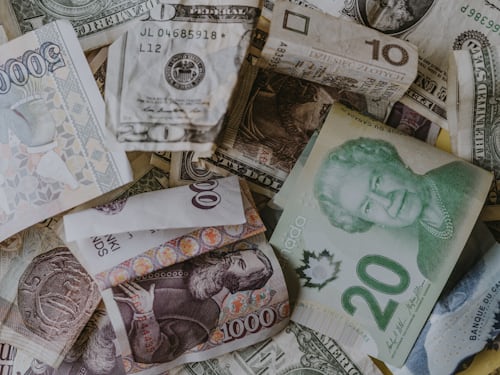Become a member
Savings or shares - Which investment is better?
It will probably come as no surprise that Millennials are less inclined to invest their earnings in the stock market.
Having grown up in one of the worst recessions in history, many Millennials prefer to park their money in cash savings accounts rather than invest it in the stock market, which is perceived as risky.
Unfortunately, basing your investment decisions on a small snapshot of financial history leads to drastically worse outcomes when it comes to your retirement.
Let's run some numbers for a moment and find out why stocks versus savings is really no contest at all.

Shares vs savings: The numbers
The cash savings that many millennials now prefer may feel safer in the short term, but it's a guaranteed way to lose money in the long run.
Let's take a generous cash savings rate of 1.5% and look at what happens when a base amount is compounded at that rate over the standard 30-year period for retirement savings.
After 30 years with an annual return of 1.5%, an investment of €10,000 would be worth €15,630. Think about these figures: If you manage to save 10,000 euros for retirement this year, after 30 years of saving you will have earned only a little over 5,000 euros in interest... hardly the stuff of retirement dreams.
This analysis of saving doesn't even take into account the impact that inflation has on the purchasing power of your money. Historical inflation rates of 2% mean that you actually lose purchasing power every year if you save your money instead of investing it.
Let's not turn to the returns from investing in the stock market.
Assuming a historical return of 9% per year over the same 30-year pension savings period, your initial €10,000 would be worth €132,676... meaning you would earn more than 20 times the return on your investment compared to saving over the same period.
These figures show that when it comes to shares versus saving, there really is no argument about the type of time period people save for their retirement.

The dark years of investing
Ok, so taking the average stock market return over a long period of time is great, but what about those years, like the last recession, where the stock market loses tons of value?
That's a valid concern, but there's a simple solution form some thai trader: เพียงอยู่ในตลาดที่มี โหลด exness และอย่าพยายามลงทุนเวลาของคุณบางคนจะเริ่มลงทุนในเวลาที่ราคาหุ้นต่ํา, และพวกเขาจะเห็นผลตอบแทนของพวกเขาเพิ่มขึ้นเร็วกว่าในระยะยาวและจบลงด้วยหม้อเงินบํานาญที่ใหญ่กว่านักลงทุนทั่วไปเล็กน้อย.
It basically means: just stay in the market and don't try to time your investments. Some people will start investing at a time when share prices are low, and they will see their returns rise faster over the long term and end up with a slightly larger pension pot than the average investor.
Others will start when share prices are at their peak and see their initial investments fall in price before the long-term effect of the stock market takes hold, and they end up at the bottom when it is time to retire.
|